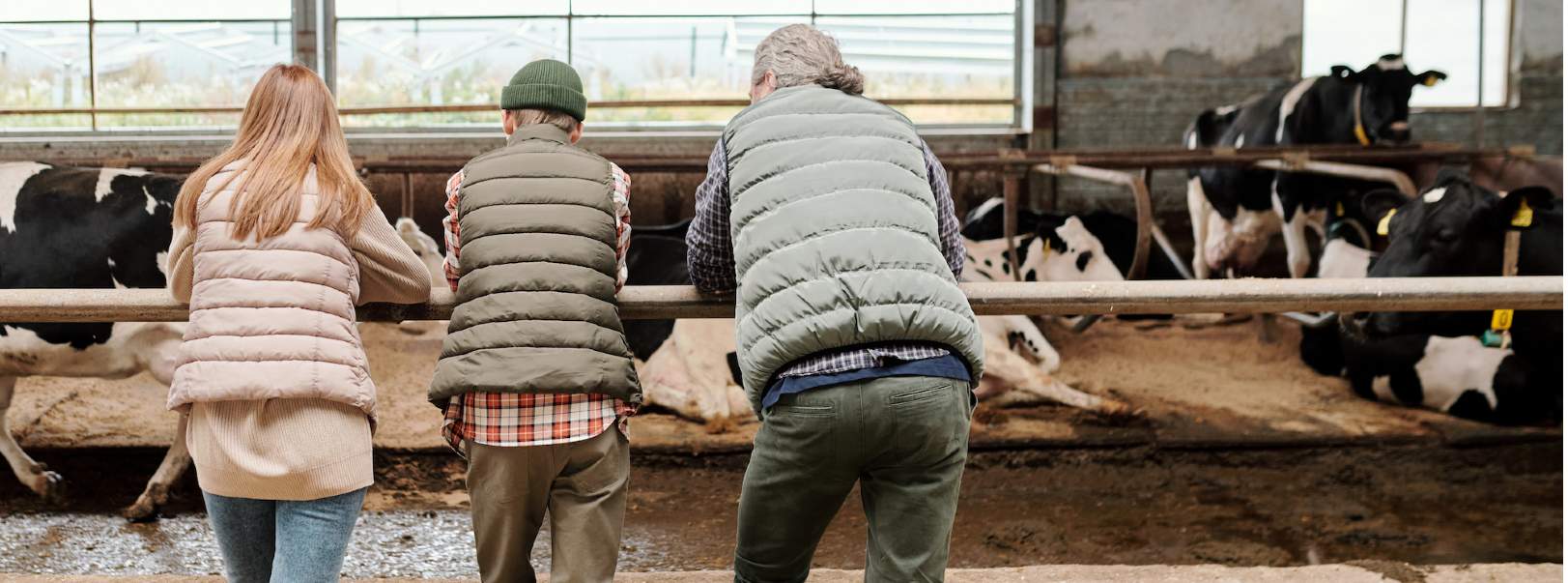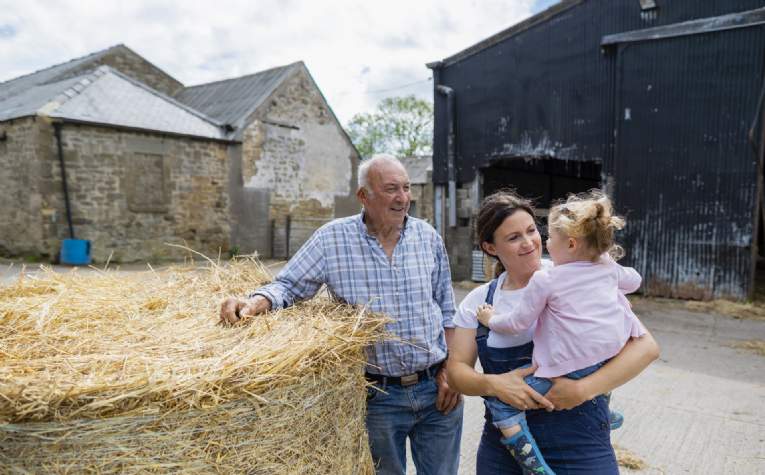Succession can be an exasperating and difficult topic to address on the family farm.
For those growing up around farming, conversations with parents and advisors all too often emphasise the concerns of the generation handing on, and not the requirements and expectations of younger farmers and landowners keen to follow in their footsteps. While there are themes common to all, it is the needs of the next generation that are less well considered.
Changing expectations
For many people coming back to the family farm or estate from another career, expectations will have changed from practices that may have suited an older generation.
The need for connectivity, manageable working hours, social and environmental equality and diversity are all values many of the next generation will have learnt through workplaces elsewhere, and for many in the older generation these changing values can be confrontational. The world within the farm or estate may not have altered much over the last 40 years, but we are facing a major generational change now as a result of the agricultural transition plan.
As a first step, both older and next generations should seek to understand the world and the workplace from the other’s perspective and accept that their views and values are legitimate. There will be plenty of overlap in hopes and aspirations.
However, what is absolutely clear is that the thinking that got us to today is not the thinking that will take us into the future. For next generation and new entrant farmers and landowners, the agricultural transition plan could be the catalyst they need to bring forward opportunity.
Treading on toes
Years at the helm of a business inevitably leads to well-established routines and ways of doing things. A successor comes with new ideas and different skills. These might be to do with income creation and in terms of how management processes might be improved and modernised. The next generation does not want anyone to feel they are treading on toes or to create any resentment. Having an agreed plan of how and over what period a handover takes place will help to make sure the business doesn’t stagnate due to fear of upsetting anyone.
Lack of certainty
For the next generation, knowing what will happen when is key. Barring unforeseen events, if the successor knows that by a particular birthday or calendar year they will be assuming responsibility for all or part of the family business, they can make other life plans up until that point in time. Increasingly, members of the next generation have careers away from the farm or estate and return home having learned valuable life and business lessons. Having certainty on the timing of their return means full advantage can be taken of the preceding years, which benefits everyone.
Fear of letting go
It is incumbent upon advisors to broker these difficult conversations with sensitivity and ambition, ensuring that the needs of the retiring generation are met as much as the interests and aspirations of the next generation are considered. In the worst-case scenario, tax considerations take precedence over family values, inhibiting sensible decisions about housing, divestment and attitudes to business risk.
In some situations, the advisors have also been working with the business for a long time and they themselves might need to accept that new and different skills may be needed to help with the transition. A good recipe relies on changing just one element at a time, in order to measure the impact and judge success, but life is a not a recipe to be followed. A new generation of trusted advisors may be as essential as a new generation of farmers and landowners, and sometimes a more radical shake-up will help explore new angles and facilitate a break with unhelpful traditions of the past.
The key to success in succession is communication. Families and new partnerships need to work with advisors and every generation in an open and honest way to produce a clear and actionable plan. The plan is ideal because it gives certainty and clarity to all impacted by change, including those who are not included in the business, and allows the next generation to get fully involved in the business with confidence.
For the older generation, a well-articulated succession plan can also ease worries about leaving or paying IHT and reduce stress at the time of death by knowing the business side has a clear succession underway.
Time is of the essence as the impact of a declining Basic Payment Scheme starts to bite and owners of farming businesses weigh up their appetite for risk in a volatile market. For some, a decision to sell is the opportunity for all to start afresh and provide an opportunity for others to make a start. For others, it’s the ideal time to bring forward the necessary conversations between generations as to how to navigate the choppy waters ahead.
Further information
Contact Katie Benbow

.jpg)
.jpg)
.jpg)
.jpg)

.jpg)


.jpg)
.jpg)